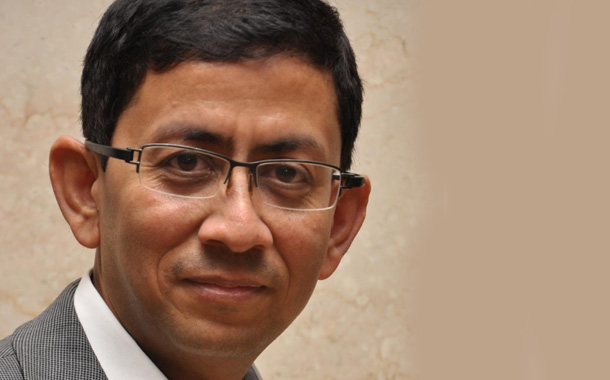Nearly three decades old, Rocket Software has kept its focus on mainframes helping businesses with applications and tools that modernize the mainframe to cater to today’s enterprise demands of mobile, cloud, BYOD, and new approaches to computing.
[quote font=”tahoma” font_size=”13″ font_style=”italic” color=”#262626″ bgcolor=”#f9f9f9″ bcolor=”#5b9cc0″]
 “Our entire engineering structure is global, so our teams in India are focused on the big picture. We’re not looking at the India offices to develop products just for India – they’re going to be used all over the world.”
“Our entire engineering structure is global, so our teams in India are focused on the big picture. We’re not looking at the India offices to develop products just for India – they’re going to be used all over the world.”
Shantanu Ghosh
Managing Director and VP
Rocket Software’s CoE in India and China
[/quote]
Tell us about Rocket Software’s journey in the mainframes industry?
Rocket Software was founded 28 years ago in Boston and has been focused on mainframes for our entire history. Mainframes continue to be the workhorse of the technology world – they’re used by just about every bank, government and hospital in the world because they are a combination of fast and secure. The key to the mainframe’s longevity is that it is continuously being modernized, and that’s the role that Rocket plays in the big iron ecosystem. When mainframes were invented there was no such thing as the cloud or mobile – email didn’t even exist. What Rocket does is build applications and tools that modernize the mainframe. Today’s mainframes support mobile, cloud, BYOD, and all of the current approaches to computing. We also build tools that let people program mainframes in any language. This ensures that anyone can use a mainframe, which extends the value of these systems even more.
How has been your journey in India so far?
Rocket started in the US and has slowly expanded its footprint around the world. India is our newest location, and the company is very excited about the opportunities here. We opened our first office in Bengaluru in early 2018, and we now have a second location in Pune, which is where I’m based. In fact, we’ve named India a Centre of Excellence for the whole company because our leadership team sees our labs in Bengaluru and Pune as critical to our overall success. A lot of global companies open offices in India because of our engineering talent, but Rocket actually sees us as a source of business leadership. There are already a number of Indians in senior roles within the company.
Can you shed light on your India Centre of Excellence?
Rocket started off with two engineers (the co-founders, including CEO Andy Youniss), and for many years the company only had one location. About 15 years ago Rocket started acquiring companies all around the world and build up a “lab” structure based on the specific products that were being built in each region. We’ve hit a size where that no longer made sense, so the entire engineering organization has been rebuilt to reflect the much broader mission of Rocket. There are now six global Centres of Excellence, and I’m proud to say that India is one of them.
What will be the focus of India team in terms of target customers?
Our entire engineering structure is global, so our teams in India (not to mention the US, Russia, Australia, China, and other countries) are focused on the big picture. We’re not looking at the India offices to develop products just for India – they’re going to be used all over the world. And we’re not just a satellite office. That’s why we are hiring at every level, from recent university graduates to senior executives with decades of experience.




